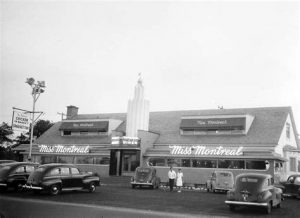Liz now works as a senior sales manager in a company that makes decisions via consensus building, or buy-in. Liz has been with the company for 9 months.
The common practice is to consult all those impacted by a decision for input in order to build full apriori support for the decision and ease its implementation.
The company’s culture frowns on managers and decisions made without buy in. Decision making takes a while, but it is very rare that people blame one another for poor decisions, because before the decision, everyone has agreed.
Liz ‘s boss wants to take away three of her 3 dedicated presales people in order to transfer them to a new “brand enhancement” group, Liz is dead set against this move and has not budged towards agreement despite all of her boss’s attempts to get her buy in.
Liz has been very flustered due to the mounting pressure on her to conform to the proposed change; Liz went out to lunch today with Allon, a veteran member of the Israel based team currently spending a month in company HQ, where Liz works.
Over lunch, Allon told Liz that “buy-in” is not the company culture; it is the company’s institutionalized ideology; it’s almost a religion. As in institutionalized religions there are ceremonies to enforce practices, high priests aka HR who force feed/preach, and tons of deviant behaviour by staff who don’t want the religion “shoved down their throat”.
Allon told Liz that the most common way to deal with this forced buy-in is “feigned buy-in”.
Liz, who is very straight-forward almost to a fault told Allon that she does not want to feign buy-in and subsequently lose the three people who run her successful presales effort,
“You don’t need to lose the people, Liz. First you need to feign agreement, Then, ask for “phased implementation”, perhaps one transfer ever six months. And, in the meantime, just re-recruit the resources you need, give them a new title, and keep them focused on presales activity as always”.
Liz asked Allon why the company puts up with this nonsense.
Most organizational ideologies which look like religion as opposed to culture, want things to look good. Under the table, lots of deviance is tolerated to keep up the appearance. “Don’t forget Liz, buy-in here is an orthodox unchallenged religious premise”.
“Ah”, said Liz, ” It’s not a true belief, because true belief doesn’t look like this”.
Both Liz and Allon had learned.
And finally lessons learned-
The use of consensus-based decision making should be contingency based. There are decisions which need to be taken top down.And feigned buy-in is the child of overdosing on the religion/ideology of consensus-based decision making.
Authority, even arbitrary authority, is needed in some cases.
If you ask the author of this blog, authority is often very arbitrary. And some people even prefer it that way.




